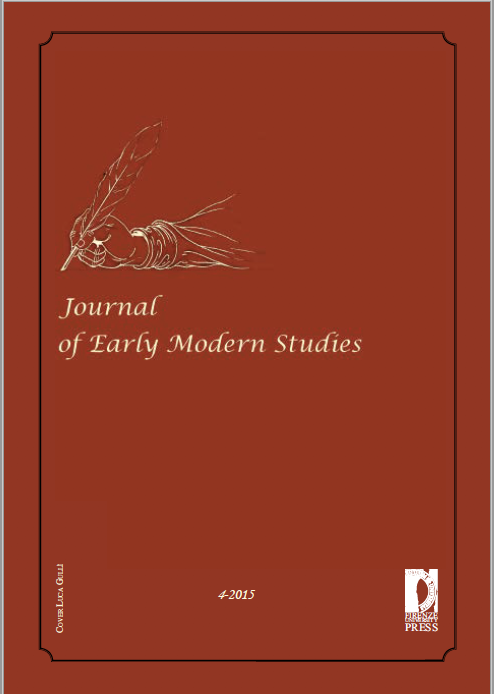Published 2015-03-02
Keywords
- de casibus,
- Dream Vision,
- Mary Stuart,
- Mirror for Magistrates,
- Richard Robinson
How to Cite
Abstract
In response to the recent call to re-evaluate what C.S. Lewis called the ‘Drab Age’, the article reassesses one sixteenth-century poem, The Rewarde of Wickednesse (1574), and its author, Richard Robinson. The poem is framed in such a way that the topos of service is central to an understanding of Robinson’s authorial identity, an identity determined by his proclaimed status within the household of the sixth Earl of Shrewsbury. The poet claims to be one ‘of a hundreth’ serving the family during the captivity of Mary, Queen of Scots. The article locates the Rewarde of Wickednesse within the relevant geographical, literary and socio-political contexts and reveals aspects of Robinson’s artistry that have remained hitherto unexplored.


